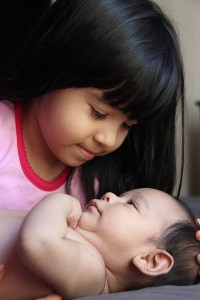Is your child having problems in school (e.g. poor grades) and in social situations? Is
 she at times described as “tamad” (lazy) or “matigas ang ulo” (hard headed)?
she at times described as “tamad” (lazy) or “matigas ang ulo” (hard headed)?
It may be good to answer the following questions to see if there is more to your loved one’s condition than the usual issues of a child:
1. Does your child have difficulty organizing tasks and activities?
2. Does he/she lose things necessary to perform these tasks and activities, such as toys, school assignments, pencils, books?
3. Does your child make careless mistakes in schoolwork and is not able to give close attention to details ?
4. Does he/she have a difficult time following through on instructions and finishing schoolwork and chores?
5. Does your child have difficulty sustaining attention in tasks and play activities?
6. Does he/she seem not to listen when spoken to directly?
7. Is your child forgetful in daily activities?
If the answer is yes to most of the above questions then your child may be manifesting a condition called ADHD (Attention Deficit Hyperactive Disorder) predominantly Inattentive Type *
If you notice these problems in your child, you can take the following measures:
– talk to your child’s teachers regarding their observations in the classroom;
– consult a Developmental Pediatrician and/or Psychologist for a formal assessment/diagnosis, intervention planning and referrals to appropriate professionals.
It is best to set an appointment with the “Dev Ped” as soon as possible as the waiting period may take as long as 6-8 months!
Teamwork with the Dev Ped, Psychologist, Teachers and other allied medical professionals (Occupational Therapists, Speech Therapists etc) will help you assess and document your child’s condition, and determine the interventions and accommodations needed to help your child and the family manage the situation effectively.
*(Source: DSM-IV-TR, pp 92-93)


